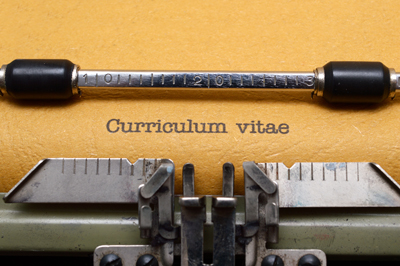Freelancer of the Month March 2014 – Sarah Nisbet
0The Freelancer of the Month feature is back after a six-month hiatus! This time we caught up with proofreader and copy-editor Sarah Nisbet of Inkshed Editorial who very kindly shared her proofreading experiences and insights with us.
Hi Sarah! Please can you tell us a little bit about the nature of your business?
I specialise in proofreading and light copy-editing, but I am also able to offer content writing. My non-fiction subject areas are humanities, such as history, archaeology and education; when working with fiction I am happy with most genres, including children’s and young adults’ books. However, the subject areas that I work within are growing all the time, and I love learning about topics that are new to me: for example, some of my recent clients include companies and individuals involved in business, branding and digital media.
Tell us about your journey to becoming a freelancer.
I have worked within different professions since leaving university (many years ago … nope, I’m not saying how many), my favourites being archaeology, teaching and library work. I decided that the time was right to do something that I had been thinking about for a while: learn how to proofread. I felt that my eye for detail and my love of reading would stand me in good stead – but as I soon found out, there is more to it than that! The course that I did taught me about the processes involved in proofreading, and by the end of it I felt confident that I could offer a professional, flexible service to a variety of clients. Although I believed I had achieved a lot in completing my course there were plenty more challenges to come, as going ‘live’ brought its own learning curve. It’s been a rollercoaster ride, but I haven’t looked back – not even once!
What do you enjoy most about running your own business?
Where to start? I love the job, so to be earning a living from it is wonderful – as is having happy clients: it really is a fantastic feeling to know that clients are pleased with the work I have done for them. Also I feel very lucky that I get the chance to work with a variety of subject matter from day to day (for example, I might start the week with proofreading a history book and end it with writing or editing a press release). I’m pretty good at motivating myself and I’m really enjoying being my own boss and growing my own business; in fact I think that it’s my ideal scenario and something that I should have tried earlier! On the practical side of things, as I have a young family the fact that I can work flexible hours, from home, is yet another plus.
What are the downsides to working for yourself, if any, and how do you overcome them?
As I work from home, distractions can be a downside: phone calls, knocks on the door, noisy offspring, demanding pets … these can make it difficult to concentrate. Earplugs are a must!
How do you go about promoting your business/finding clients?
While I was still on my training course I looked into the best ways of marketing my business: I took inspiration from the way that others in the same profession went about this, and made contact with other proofreaders and copy-editors, through joining the Society for Proofreaders and Editors (SfEP) and forums, such as Gpuss.com. The freelance community is such a friendly, generous one and people are often more than happy to share useful information. I also read lots and lots of books about all aspects of becoming a freelance. My initial campaign involved building a website, inkshededitorial.com; creating a social media presence on several sites (including LinkedIn and Twitter); contacting publishers (speculative phone calls, followed by emails); and, of course, joining Find a Proofreader – a very wise move! I have been pretty busy, so my marketing tactics since then have mainly involved expanding on the above.
What is your most treasured work-related possession?
Until recently, I would have said my lovely, trusty and essential laptop (I’m saying that, in case it’s listening!) but … my new A2-sized whiteboard is a close second. Some of my colleagues recommended buying one – and they were not wrong. It charts my aims for each week and makes me feel very, very organised.
What do you enjoy doing when you’re not working with words?
Spending time with my family and friends; enjoying books, films, music, and walks. If I had more time, I would work on researching my family history, which is something I started some time ago, but haven’t made much progress with recently.
What’s your favourite book?
In terms of fiction, there are just too many wonderful books to choose from, although ‘Pure’ by Andrew Miller and ‘Any Human Heart’ by William Boyd are favourites from the last year or so, and if I had an all-time top ten, I’m sure they would be in it. My favourite non-fiction book is ‘Brewer’s Dictionary of Phrase and Fable’.
Have you got any advice for aspiring freelancers?
I am still at a reasonably early stage in my freelance career, but this advice is based on my experience so far:
- go for it!
- believe in yourself and your abilities;
- be ready to learn – and to keep learning;
- be focussed, flexible and forward-thinking, when it comes to finding work;
- get to know other freelance professionals in your field, as it’s always good to have colleagues to talk to whether socially, or for practical support;
- there might be some setbacks along the way, but don’t be put off by them (in fact, try to learn from them);
- … oh, and you might want to buy some earplugs. :)



 Because many of us are often asked to proofread CVs, I thought it might be useful to make some general points about how they should be written. Armed with this knowledge, you can go beyond basic corrections and offer advice to your client about improving his or her CV.
Because many of us are often asked to proofread CVs, I thought it might be useful to make some general points about how they should be written. Armed with this knowledge, you can go beyond basic corrections and offer advice to your client about improving his or her CV.
 Robert Ginger is a professional proofreader and copy-editor and lives in Maidenhead, Berkshire. He is the author of
Robert Ginger is a professional proofreader and copy-editor and lives in Maidenhead, Berkshire. He is the author of 